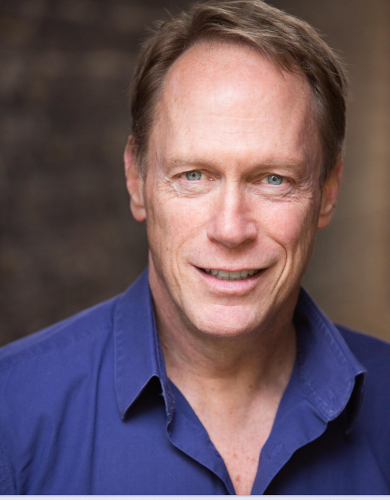Inspired by the battles faced by family farms across America, Possum Trot, at the Tabard this November, seamlessly blends poignancy with laughter for a timely exploration of pervasive issues affecting small-town communities.
- Todd, you'll be playing Duane, a "kind-hearted widower." Given Possum Trot's exploration of small-town struggles and community resilience. What aspects of Duane's character or his situation did you find most relatable to bring to the stage?
Listen, Duane is my age, which is terrific. Usually, you do play to age, but I think it's an interesting age. Whilst Duane, is moving on from his career, I'm certainly not doing that. I feel like I'm at the peak of my powers at 65.He is from a small town and though the farmers in his community certainly have been struggling—and possibly some small business owners—Duane has had a successful business and so he's not struggling financially. He has a line where he says, "The road behind me is a lot longer than the road in front of me," and he wants to embrace his future and follow some dreams. I've found that as the years have gone on, the characters I play become much more interesting. They're much more interesting to me than they were in my 20s and 30s. And they continue to get more interesting.
- You're well known for your long-running role on Coronation Street and work in film. How does preparing for a world-debut stage production like Possum Trot compare to your work on long-form television or movies, and what do you enjoy most about returning to the theatre?
This is my fourth theatre production since I finished on Coronation Street towards the end of 2023. I love the collaboration while you’re creating a character. My favourite piece of advice comes from Uta Hagen, the acting teacher: “Listen, I get into a rehearsal room, and I do everything. I research the period, I research the character’s circumstances, their career, their upbringing. But I’m kind to myself, and I’m patient”
Having the time in a rehearsal space is just magical—you’re with other actors, often quite a few, or in this case, four others—and you’re all feeling your way together. It’s quite wonderful. I love how theatre is so collaborative as opposed to television or movies.
There’s also a fascinating thing about line learning. When you’re learning for television, your brain instantly erases the memory of any scenes once they’re filmed unlike in theatre.
I also love that with theatre, we were playing thousand-seaters in a play I did recently, Death Comes to Pemberley, and you really use the bellows—you use the instrument of the voice to reach the back of the stalls, underneath the dress circle. You must use your training, your enunciation, and all the tricks you learned as a young actor. They never leave you, and they come right back. That’s thrilling, and the older and more experienced you get, the better you become.
Also nobody cuts anything in theatre. Whereas in television or film, your work can often be manipulated by editors, because it’s out of your hands once you’ve performed.
- The play tackles significant, timely issues like the battles faced by family farms, big agricultural business, and climate concerns in small American towns. Do you feel this narrative, though set in Possum Trot, Nebraska, has a message that resonates universally with London audiences or those elsewhere who might be unfamiliar with these specific rural struggles?
I certainly do. It deals with love, loneliness, financial strain, and certainly climate change. It deals with changes in our world that are happening constantly and seem to be happening more and more. It explores people feeling lonely—particularly young people—resorting to their social media, their “socials”. I think it’s deeply relevant and resonates hugely with audiences everywhere.
Climate change affects movement around the globe. People leave small towns because corporations may have taken over farmland, so communities disappear, evaporate, or pivot and move away. But it resonates enormously because of its humanity—Kathy Rucker’s Possum Trot truly captures that.
So I would certainly say Possum Trot resonates deeply. There’s humor, love, loss, compromise, and a sense of pivot—a sense that, with my character certainly, this is it. As I said in a previous question, the road behind me is longer than the one ahead, and I want to make the most of the life I have left. I think that resonates universally, for sure.

